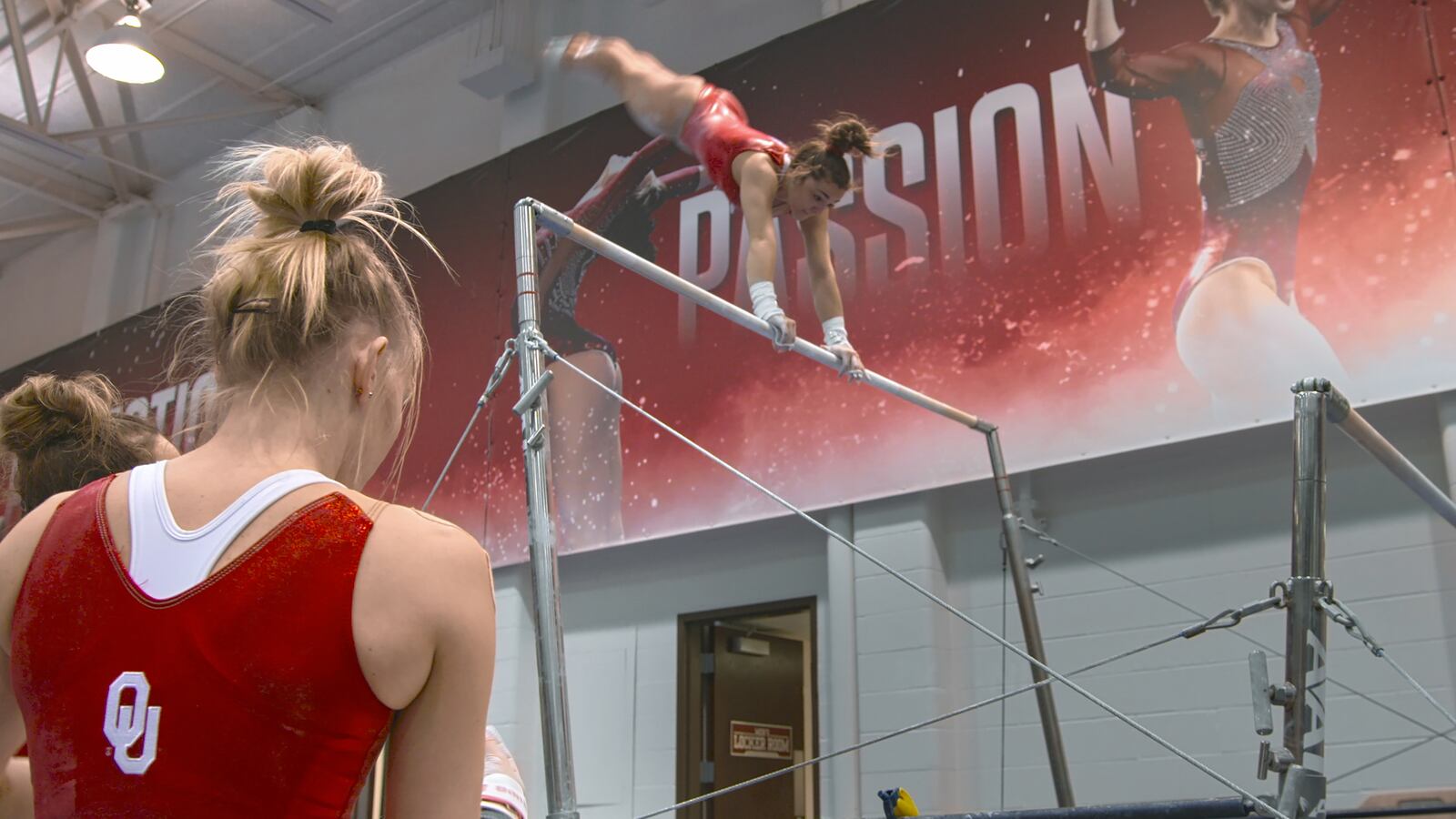Five years ago, Maggie Nichols was one of USA Gymnastics’ rising stars, a talented teammate of Simone Biles and Gabby Douglas who was featured in Olympics and Under Armour commercials and viewed as a sure thing to make the gold medal-seeking squad that would compete at the 2016 Rio Games. That promising trajectory, however, was derailed in May 2015, when she reported to her coach Sarah Jantzi that beloved team doctor Larry Nassar—who also worked at Michigan State University—had sexually assaulted her. Her accusation was passed along to Rhonda Faehn, USA Gymnastics senior vice president, and subsequently to USA Gymnastics President Steve Penny, who assured her and her parents, Gina and John Nichols, that an internal investigation would be launched, and that the FBI would be notified.
Then the family waited, and waited, and waited for word that action was being taken against Nassar. Instead, what they got was silence—followed by the bombshell that Nichols had failed, against all odds, to make the 2016 Olympic team.
Premiering June 24 on Netflix, Athlete A is the story of Nichols and the many fellow gymnasts who were raped by Nassar, their trusted trainer who claimed that digitally penetrating them was merely part of the routine treatment that would keep them in championship shape. Bonni Cohen and Jon Shenk’s documentary, however, isn’t just a well-deserved evisceration of that despicable fiend. Using as its framework the diligent reporting of The Indianapolis Star, it’s a takedown of a far larger culture of suppression, coercion and abuse fostered by USA Gymnastics, which allowed Nassar to violate young women who looked to him, above all others, for comfort and relief, all so the organization could maintain its squeaky-clean image and the millions in revenue that were predicated on it.
Treading the same general ground covered by last year’s At the Heart of Gold: Inside the USA Gymnastics Scandal, Athlete A mixes familiar archival footage with new testimonials in a conventional manner, all while differentiating itself from its non-fiction predecessor in two fundamental ways. First, it places its greatest focus on Nichols, whose ascendant career was blatantly derailed by Penny as reprisal for her jeopardizing his lucrative empire. Just as Nassar unquestionably committed crimes against upwards of 500 female athletes—which eventually landed him in prison for the remainder of his life, via multiple state and federal convictions—there’s no doubt that the abhorrent Penny knew what his prized physician was up to, and actively covered it up by ignoring complaints, failing to properly report them to law enforcement (as Michigan law required), and shaming and intimidating accusers for speaking up. Aided by celebrated coaches Béla and Márta Károlyi, who transferred their strict Romanian regimen to America, Penny’s program was built on control and fear, designed to make young girls accept pain and suffering as the normal price of success, keep their mouths shut at all times, and never question their superiors.
Appearing on-camera in a new interview (as do her parents), Nichols is often front and center, but directors Cohen and Shenk simultaneously expand their purview to depict the exhaustive efforts of Indianapolis Star reporters Marisa Kwiatkowski, Mark Alesia and Tim Evans (and editor Steve Berta) to look into allegations against Nassar, beginning with the whistleblower who got the ball rolling against the trainer, Rachael Denhollander, as well as former Olympian Jamie Dantzscher. In that respect, the film serves as a reminder of the vital part the press plays in uncovering and exposing misconduct, and holding the powerful accountable for wrongdoing. In a day and age of dwindling newspaper staffs and media consolidation, as well as virulent attacks on its legitimacy by President Trump, Athlete A is a celebration of the press as a necessary fourth branch of government, tasked with being a watchdog against individuals, and organizations determined to immorally exploit their influence and authority for selfish gain.
Most of all, the film exudes reverence for Nichols, Denhollander, Dantzscher and their kindred victims, who all speak candidly and heartbreakingly about their traumatic experiences. For publicly coming forward on her own against Nassar, Denhollander proves a figure of particular admiration, exhibiting the sort of genuine courage a spandexed Marvel superhero could only dream of possessing. Despite a USA Gymnastics machine intent on self-preservation, and a fan base eager to slander them as liars and whores, these brave women joined forces to stop Nassar from continuing to hurt girls under the guise of compassionate medical care. The bond they forged was epitomized by the 2018 sentencing hearing for Nassar, in which 156 victims read impact statements against their tormentor in a court of law for the entire world to see—heartrending footage that, no matter how many times one watches it, remains overwhelmingly poignant.
“It’s the most incredible thing I’ve ever seen in my life,” says Dantzscher’s attorney John Manley about that courtroom scene. Athlete A is a tribute to the strength and resolve of those preyed upon by Nassar, who curried favor with girls by sneaking them candy and acting like a jokey friend, only to steal their confidence, their first sexual experiences, and their sanity in the most heinous way imaginable. Clips of his educational videos, and his eventual police interview, only further underline his wolf-in-sheep’s-clothing monstrousness, which left lasting scars many girls—and families—are still struggling to cope with today.
Although justice has, in many respects, not yet been fully achieved—Penny, arrested in 2018, awaits trial on tampering charges, and USA Gymnastics reforms have been uneven at best—Athlete A is ultimately a story of triumph. That’s epitomized by Nichols herself who, after having her Olympics dreams destroyed by Penny and company, staged a comeback for the ages at the University of Oklahoma, where she led her team to an NCAA title in 2017 while nabbing personal honors as the nation’s all-around champion in both 2018 and 2019. With women like her, and Denhollander, and Dantzscher, banding together to demand real change, Cohen and Shenk’s doc inspires hope that, perhaps, the sins of the past won’t be repeated again.


